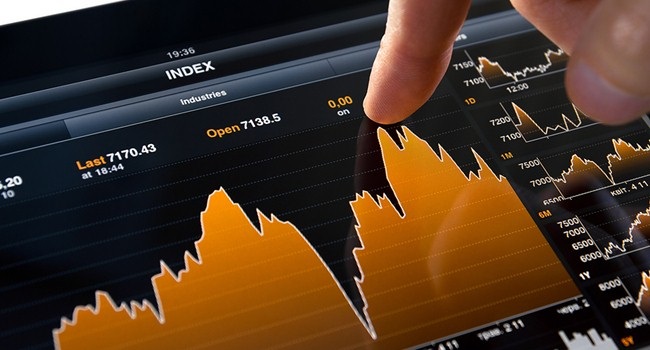
If you are a new investor you might be wondering how to buy stocks.
Well, a simple answer to that is stocks can be bought through a brokerage account, which gives you access to the stock market, and is where you can buy stocks.
How To Buy Stocks
The main way on how to buy stocks is going online and setting up an online brokerage account. You can find a variety of brokers, that offers investors a range of services.
Opening up a brokerage account is as easy as opening a bank account. Just about all online brokers let you fill out all the paperwork online so that you can open an account very fast.
Funding your account is easy too, you just basically have to transfer funds over from your bank and then your set to go.
Before you open a brokerage account check out their commission rates. Also, note some online brokers might charge a small extra fee for buying stocks that trade Over-the-Counter or trading under $1, so look into that as well.
Commission rates vary from broker to broker. But, just because a broker has very cheap commission rates doesn’t necessarily make them the best broker to choose.
Some brokers may have very cheap rates, but have poor execution on trades, low quality tools or platform and horrible customer service. The best brokers offers a a good quality mix of all of those.
There is a huge selection of brokers to choose from out there, some of the most popular ones include: Etrade, Scottrade, TD Ameritrade, Charles Schwab, Fidelity, TradeKing and many others. For more information on choosing an online broker read my other article on ⇒ Choosing a Broker
However, knowing where & how to buy stocks is one thing, but knowing the best stocks to buy and when to sell them is another. Remember, before you start investing and buying stocks, you must do research on the company before putting your money into their stock.
You can’t just go off and start buying random stocks and hoping they’ll go up in value. The point is, whenever investing in stocks, make sure you do research and understand what the company does, its financials and what you are getting into.
How the Stock Market Works
The stock market is driven by supply and demand. The number of shares of stock dictates the supply and the number of shares that investors want to buy dictates the demand.
Most trading of stocks happens on a stock exchange. These are special markets where buyers and sellers are brought together to buy and sell stocks. The best known stock exchanges are the New York Stock Exchange (NYSE) and the NASDAQ.
Shares of stock are not actually bought from the stock market, but actually you buy them from (or sell them to) other investors. The stock market is simply an exchange, a place that brings buyers & sellers together.
Stocks are listed and traded on stock exchanges which are shares of a company. The stock market exchange brings buyers and sellers of the listing of stocks and securities together. Some of the main stock exchanges are the NYSE, AMEX & NASDAQ.
As an analogy, you could think of the stock market like eBay. You don’t actually buy an item from eBay, you buy it from the seller, but you need eBay to act as a facilitator between buyers & sellers. Just like eBay, the stock market is a middle ground for buyers & sellers.
Just like on eBay, if you’re trying to buy, then you’re a bidder. In the stock market, the price you are willing to pay for shares is your “bid” price. And investors trying to sell shares set a price at the amount they want to sell their shares, which is called the “ask” price.
⇒ Read More on How The Stock Market Works
Where Are Stocks Traded?
As stated above, stocks trade on a variety of exchanges, such as NASDAQ, NYSE, AMEX, and also in the OTC (Over-the-Counter) and Pink Sheets.
The NASDAQ and NYSE are the two largest exchanges and features stocks with a market cap that range from small to large. Stocks that trade on these two exchanges are required to meet a certain standard and disclose their financial details about their company.
While, stocks that trade in the OTC or Pink Sheets have very little or no requirements to be listed and feature stocks with small, micro or nano-cap stocks. It also features stocks that may have once been listed on the NASDAQ or NYSE and didn’t comply with the exchanges listing requirements or maybe be stocks on the brink of bankruptcy.
⇒ Read More on Stock Exchanges



